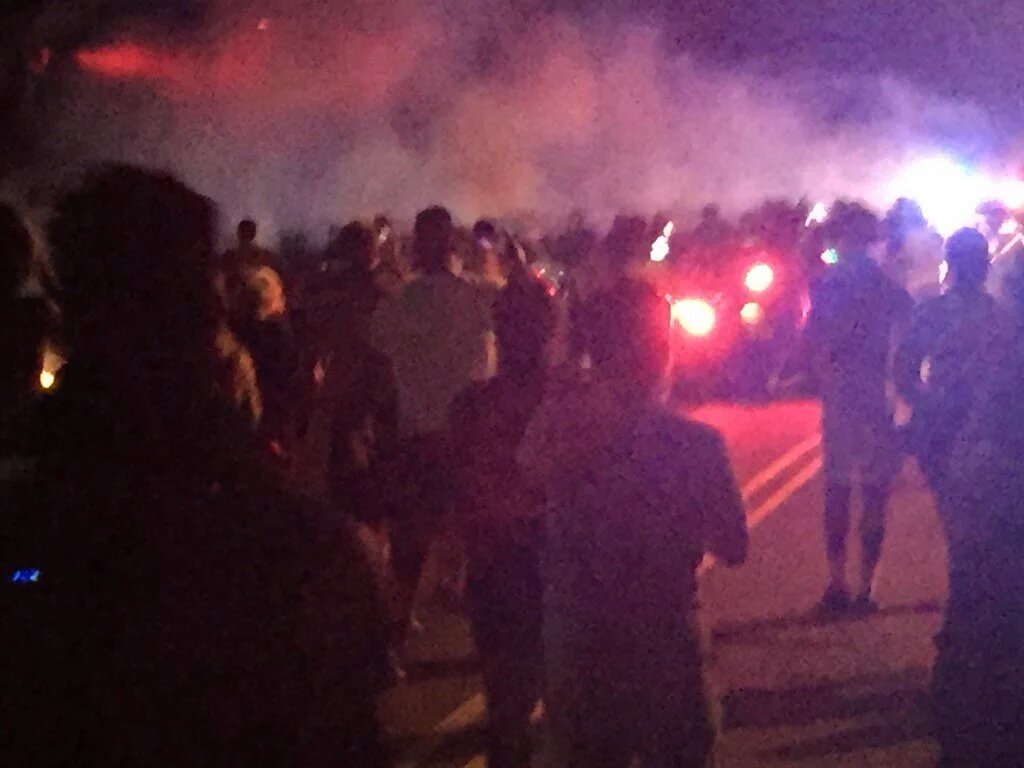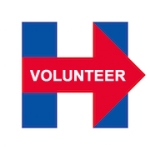And we’ve got to tackle systemic racism – this horrible shooting again. How many times do we have to see this in our country? In Tulsa, an unarmed man with his hands in the air? I mean, this is just unbearable, and it needs to be intolerable.Terence Crutcher was a dad of four whose car, an SUV kid-ferrying vehicle, broke down. And now this ... tonight.
And so maybe I can, by speaking directly to white people, say, look, this is not who we are. We’ve got to do everything possible to improve policing, to go right at implicit bias. There are good, honorable, cool-headed police officers. We have seen them in action in New York over the last 48 hours because of the terrorist attacks. We can do better. We have got to rein in what is absolutely inexplicable. And we have got to have law enforcement respect communities and communities respect law enforcement because they have to work together.
CHARLOTTE, N.C. -- A chaotic scene has erupted in the night in North Charlotte after an African-American man was shot and killed in an officer-involved shooting.This was the first thing I saw ... on Twitter. This is Charlotte - tonight.
Police say they were serving an outstanding warrant when they came upon Keith Lamont Scott in his car. They say Scott got out, had a gun on him, and put the officers in imminent danger. Officer Brentley Vinson shot Scott.
"Man was in his truck, reading a book waiting for his kid to come home," said a man on scene. "Cops shot him, for nothing."
Emergency services were called to the scene where they transported Scott to Carolinas Medical Center where he was pronounced dead.
Read more >>>>
Then this.Another night on the streets on America. #KeithLamontScott pic.twitter.com/xk8qabJRmS— Bipartisan Report (@Bipartisanism) September 21, 2016
this is happening in my city right now. #KeithLamontScott #cmpd #charlotte pic.twitter.com/HcqNxXpTAs— sedra (@sedrakurdi) September 21, 2016
#KeithLamontScott is trending on Twitter right now as I type. No news organization covered this in the late evening news nor is any cable outlet there on the streets of Charlotte reporting. They are repeating earlier shows about the election and about the NY-NJ bomber. You can go through the Twitterfeed yourself and see what people are saying. Keith Lamont Scott, a disabled dad, was sitting in his car reading a book - - perceived (?) to have been (in an open carry state) - who knows how - while waiting for his child's school bus.
Meanwhile, on cable news, Donald Trump is saying African-American communities are in "the worst shape that they've ever been in before ever, ever, ever." Apparently he is so smart that he skipped the grades where they learned about slavery and Jim Crow. Surely, privileged as he is, he never rode in cars through the Jim Crow South as a kid. I did. He never saw it first hand or drank from the wrong fountain.Black Charlotte cop crying after protesters ask whether the job was worth the Black lives killed… #KeithLamontScott pic.twitter.com/9prWAz6LqtDl— Sāvion (@SavionWright) September 21, 2016
We have a lot to talk about in this country. The news channels tonight should have been covering this story rather than Trump's words. John King was on with Anderson Cooper talking about Charlotte and apparently was unaware of this upheaval in the streets of that city due to another killing. How can that be for an organization that does nothing but news?
Finally! At 1:23 EDT CNN covers this. Not really - announces it.
Hillary Clinton is ready to talk about this. Hillary, in fact is ready for anything, including Donald Trump and all of his threats against her and everyone else.
There are no magic wands and there is no "messiah" who is the only one who can simply say a magic word and stop terrorism or street violence whether it be police overreaction or gang related. One candidate has plans and task forces in place to address these issues. She refuses to overpromise, but she promises to work hard on these issues and others for all of us.
Here is what the past four days demonstrate: Sometimes it is a really good thing that police have military-grade equipment - NY and NJ. Without that gear, more bombs might have detonated and more people might have been hurt. When those injuries happened, mysteriously, no one asked the races or religions of the victims. We were just glad they were saved. Other times, when people are angry and take to the streets, overuse of that equipment can exacerbate the situation. Also, sometimes, it is hard to discern the good guys from the bad, but when the whole neighborhood is out - let's assume they are not all the bad guys. Let's be careful in our assessments. Careful. And let's be careful when we vote. Hillary got out in front of the issues here with plans that she made public and with expert teams.
Here is what we know about Hillary: She will reach out to the Crutcher and Scott families. She will ask what she can do.






